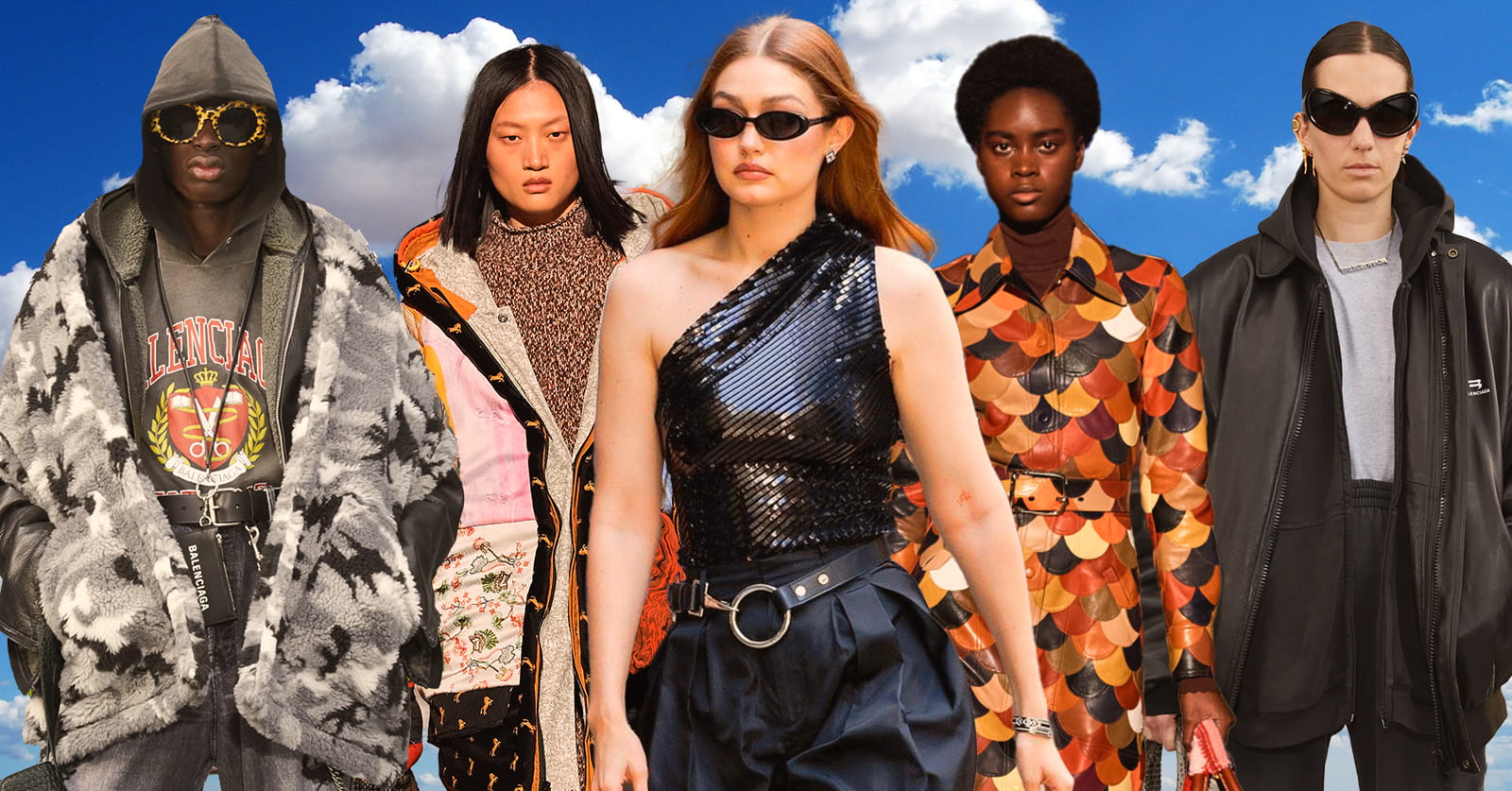These Houses are Redefining Fashion’s Future
In an era of climate awareness, growing concerns over ecological changes and environmental destruction, the push for sustainability in fashion is hardly new. With greenwashing and performative initiatives being called out, brands have realized that looking sustainable is different from being sustainable. Being sustainable is about more than citing environmental goals 5, 10, even 15 years in the future. It's about enacting real movement and updating old, potentially damaging practices and methods of productions. It means physically changing manufacturing systems, design processes, fabric choices and even venues.
For consumers today, choosing the eco-conscious option is becoming an increasingly important factor to consider when making a purchase. With more customers thinking about the implications of buying new products, it is not enough for brands and design houses to pledge sustainability by using one zero-waste fabric within their collections. Instead, big change is needed, and brands showcasing an uncompromised vision of eco-responsibility and inclusivity are the ones making the most headway.
Influential Decisions
Balenciaga’s creative director Demna Gvasalia is no exception. In April of this year, the Georgian designer revealed the luxury house’s pre-fall 2021 show. Featuring a photoshopped lookbook with ‘I wish you were here’ postcard-inspired backdrops, Gvasalia’s vision was symbolized through bright pink sweatshirts embellished with Pride inclusive statements, neon traffic yellow jackets, metallic silver stiletto boots and statement animal print sunglasses. For all his boldness, it is not hard to see how Gvasalia’s unmistakable eye and generational magnetism consistently creates online buzz.
Gvasalia has never shied away from using his position as creative director to make a statement, and that extends to the issue of sustainability. “When I started this collection,” Gvasalia said, referring to the show, “I said only show me sustainable fabrics. I don’t want to look at anything else… So everything here, beginning with the pink hoodie, emblazoned varsity-style with the words GAY Pride and swathed with a matching stole, to the black drama of the puffed-sleeve gown-like silhouette at the end, is made from recycled and otherwise certifiably okay materials.”
View this post on Instagram
Gucci’s creative director Alessandro Michele wears Balenciaga pre-fall 2021. Credits: @alessandro_michele
Balenciaga’s forward-facing vision centralizes fashion’s plight to consider more inclusive methods of employment as well. In 2019, the brand’s CEO Cedric Charbit spoke about the intention to start the conversation on social issues such as gender equality and pay equality initiatives, with their designs but also internally as a company itself.
Exploring craft & creativity
Other house heads are also displaying an increased vision of eco-responsibility with new collections. At Chloé, newly-appointed creative director Gabriela Hearst follows in a long and successful line of women-empowered designers with her first show for the Parisian luxury ready-to-wear brand. In March, repurposing, upcycling and hand-spun creations characterized the Chloé runway, sparking conversations on sustainable design with Hearst’s handcrafted, down-to-earth approach.
View this post on Instagram
Chloé creative director Gabriela Hearst reimagines the house’s modern femininity with a sustainable spirit. Credits: @gabrielahearst
An alchemical mix between Chloé’s Bohemian femininity and the Hearst’s unique Uruguayan heritage created a boundless spirit of collaboration and creativity. Fine craft saw itself in mosaic blouses made under the direction of Peter Miles, an artist who used seaweed and egg to get the unique prints, collage-inspired patterns, repurposed leather bags and statement pieces such as the draped puffer jackets created in collaboration with nonprofit organization Sheltersuit. The organization, which works to shelter homeless people through designing garments for extreme weather conditions, also partnered with the French house to design limited edition backpacks using deadstock materials. For each backpack sold, Chloé will fund two sheltersuits.
View this post on Instagram
Credits: @sheltersuit
A Shared Vision
Off the runway, big names are also enacting change. In August, Kering Eyewear and Zeiss Sunlens have announced plans to integrate a more eco-conscious attitude within production, namely the use of sustainable, bio-based lenses. These newly designed lenses are largely created from organic materials and have been certified by REDCert, the renewable energy scheme of the European Commission.
View this post on Instagram
Zeiss Sunlens’s plans to integrate organic-based lenses will be extended to the company’s clientele. Credits: @zeisssunlens
Zeiss’s impressive clientele and history of providing premium lenses to international eyewear brands like Gentle Monster and Retrosuperfuture, makes this venture even more promising for the future of sustainable frames.
